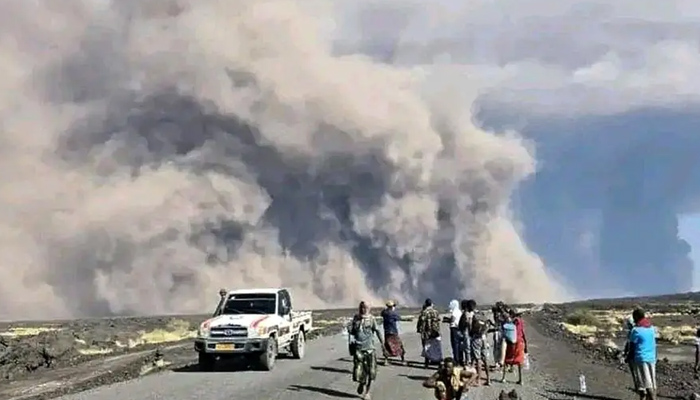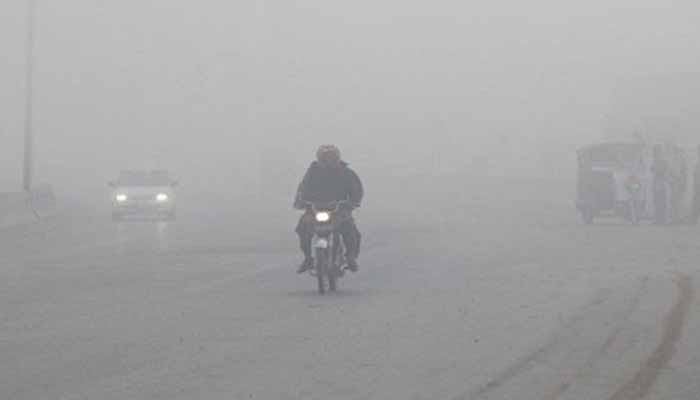Climate

Ethiopia witnessed a rare geological event as the Hale Gubbi volcano, dormant for approximately 12,000 years, erupted in the Afar region, around 800 kilometers from the capital, Addis Ababa.
According to reports, plumes of smoke from the volcano soared to a height of 46,000 feet, prompting concerns across the region. The French Meteorological Agency confirmed that this marks the first recorded eruption of Hale Gubbi in over 12 millennia.
The volcanic ash is reported to have traveled long distances, reaching Yemen, Oman, India, and northern Pakistan. Despite the intensity of the eruption, Ethiopian authorities have not reported any casualties or the need for evacuations so far.
American geologists have noted that there is no previous record of activity from Hale Gubbi, making this eruption an unprecedented event in modern times. Authorities are monitoring the situation closely, and the international scientific community is observing the eruption to study its potential impacts on air travel and regional climate.
The eruption underscores Ethiopia’s location within the geologically active East African Rift, where volcanic activity is relatively common, although Hale Gubbi’s eruption remains a historic event due to its long dormancy.




